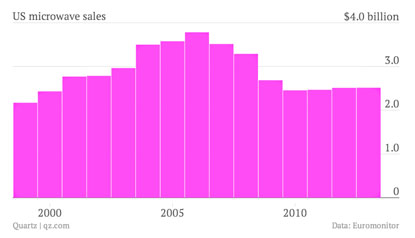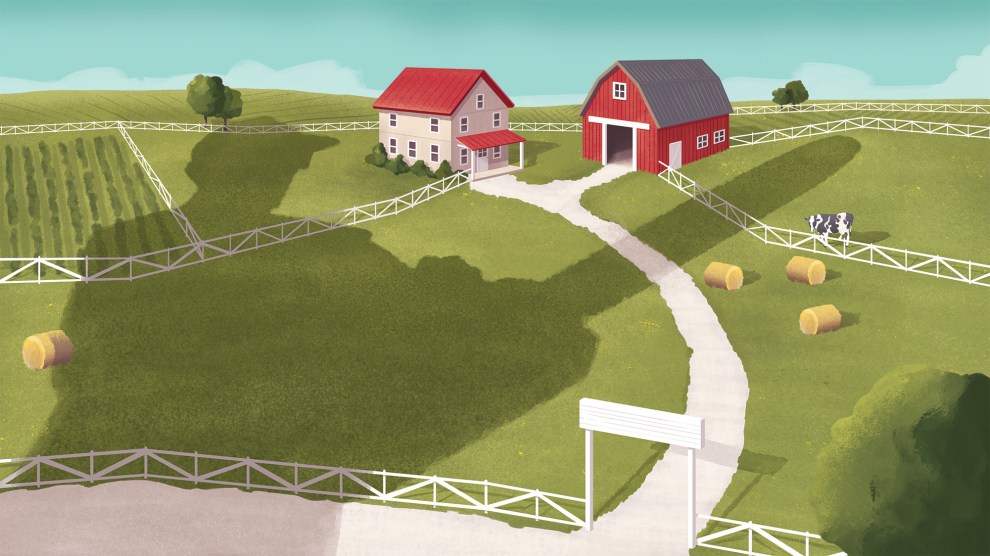A few days ago, when I read this piece in Quartz about the decline in microwave oven sales, I was suspicious. “A shift in eating habits—which favors freshness and quality over speed and convenience—has left a growing number of microwaves dormant on kitchen counters,” said the author.
Hmmm. Maybe. But although there might well have been a trend toward freshness and quality among the kind of people who read Quartz, I’m less convinced that this is true of the nation at large. The frozen pizza section of my supermarket sure doesn’t seem to have shrunk  lately. Still, I didn’t really have a good explanation for the decline in microwave sales. But Megan McArdle does:
lately. Still, I didn’t really have a good explanation for the decline in microwave sales. But Megan McArdle does:
So people are shifting toward built-in microwaves — and sales of microwaves peaked in 2006. This doesn’t suggest a trend toward fresher food to me; it suggests that the housing bubble produced a surge in demand for microwaves, as contractors and homebuilders installed them above half the ovens in the U.S. When the housing bubble popped, demand sank precipitously. Because people replace built-in appliances much less often than they do the ones on their countertop, it’s taking a long time to recover.
I don’t know if this is the explanation either, but it sounds fairly plausible as at least part of the explanation. Generally speaking, I’d add that microwave technology hasn’t improved or changed a lot in the past decade, so most of us don’t have much incentive to buy a new one as long as the old one is still working. After I read the Quartz piece, for example, I tried to think of what I use our microwave for, and I only came up with four things: melting butter, pre-cooking potatoes, heating pasta sauce, and reheating leftovers.1 I remember that a while ago Marian and I were thinking about getting a new one for some reason (stuck door latch?), but ended up not bothering. It just wasn’t ever urgent enough to get us truly motivated to shop around.
1Microwave popcorn is an invention of Satan. It will never be found on my shelves.


















